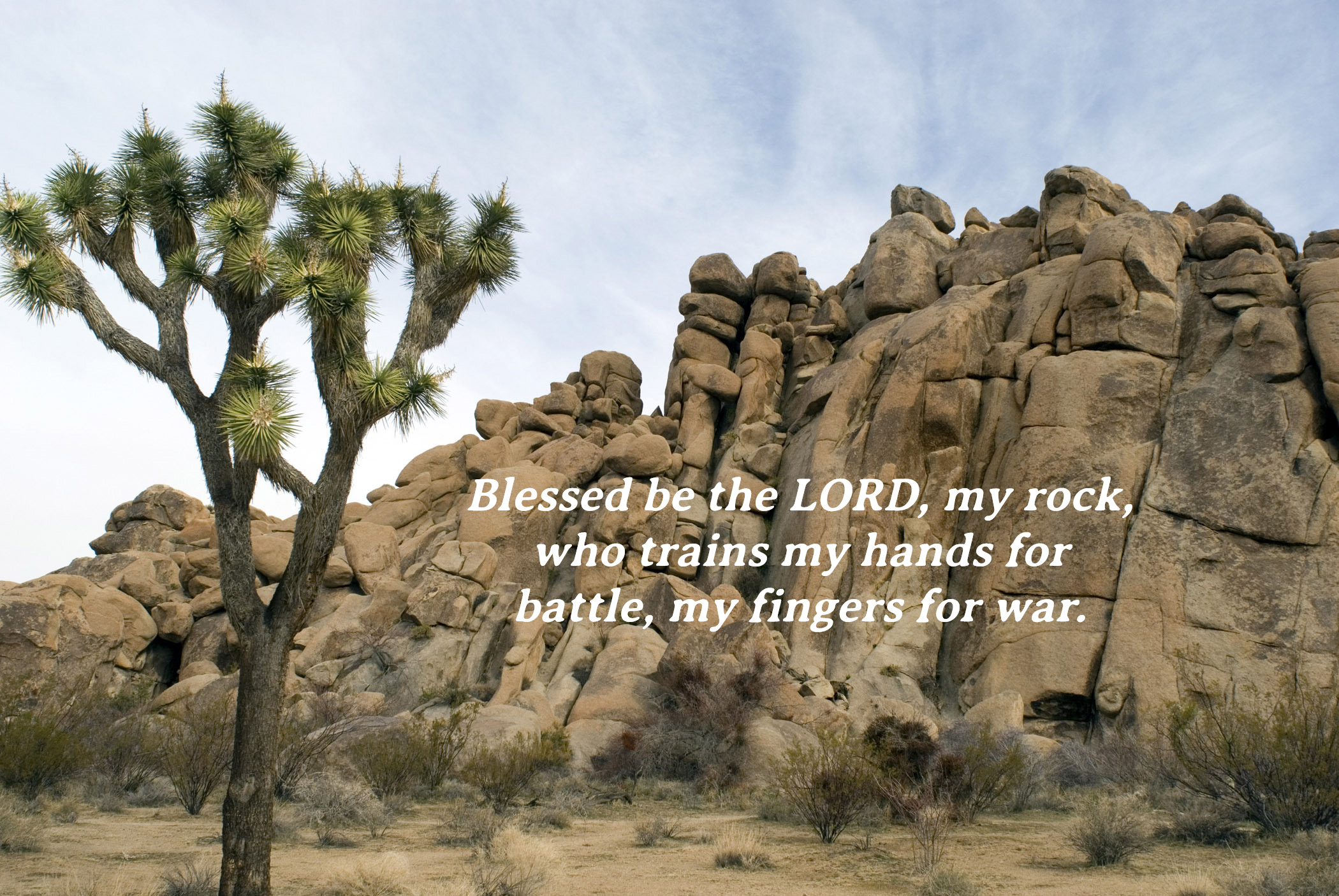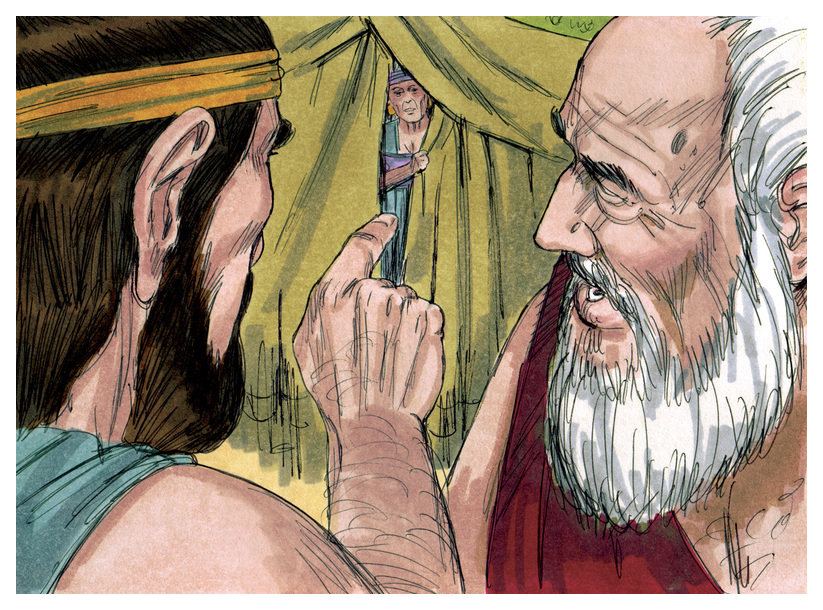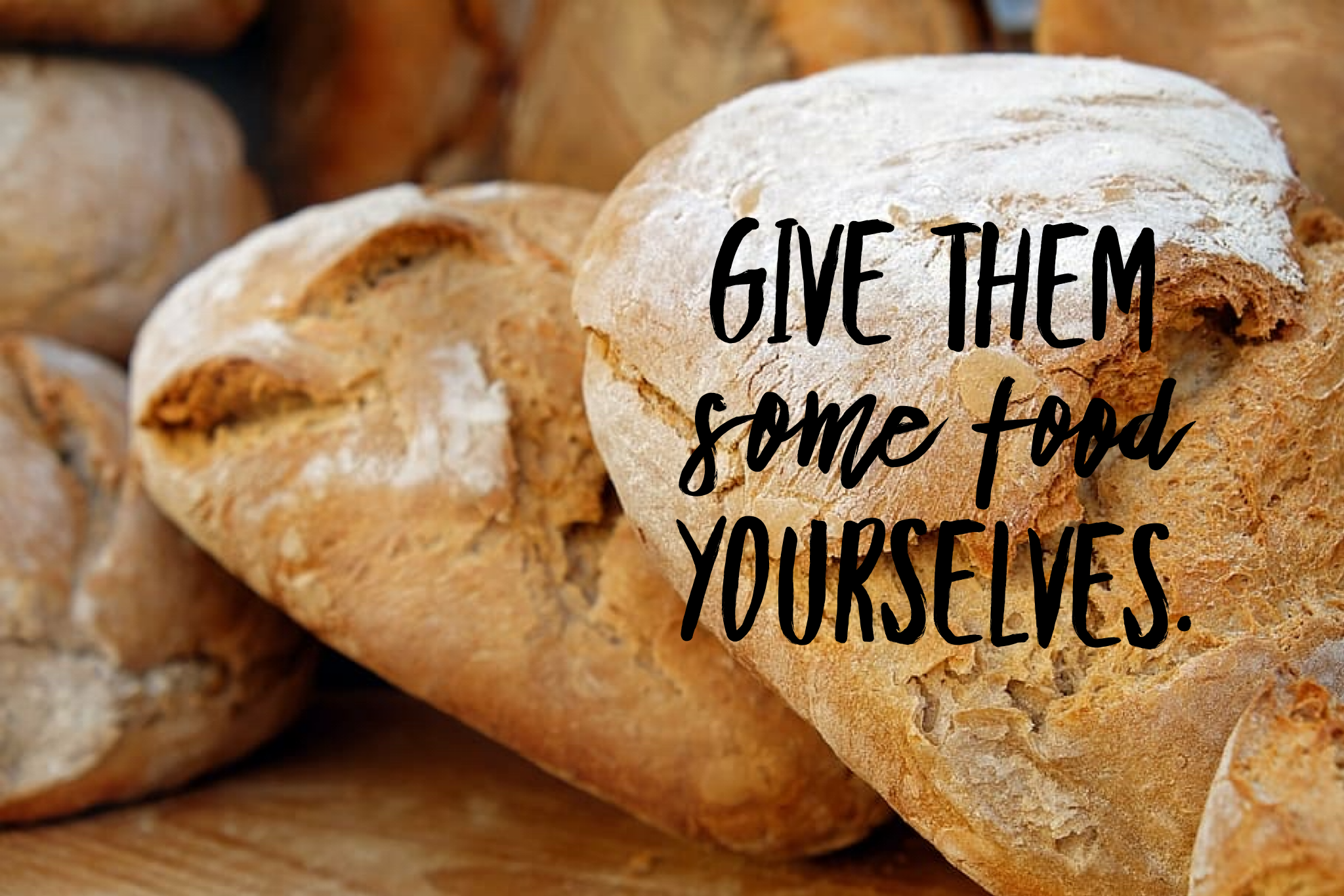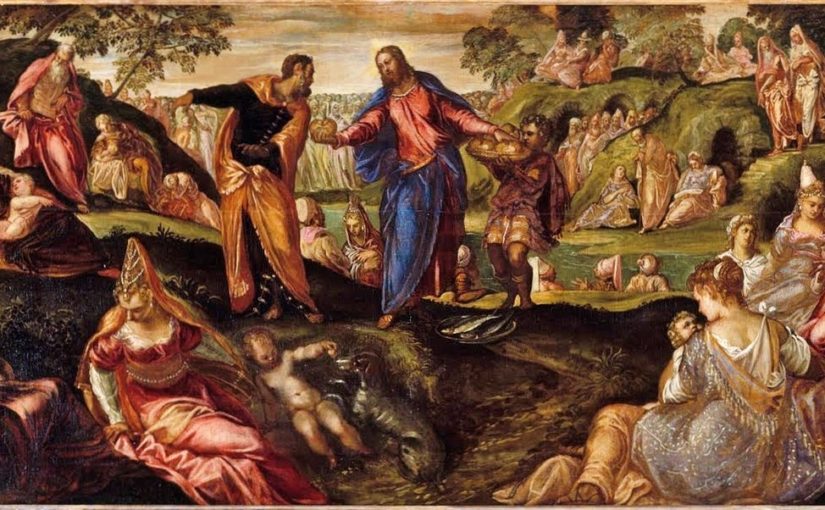Today’s readings
Bishop Kaffer, of happy memory, used to say that every celebration of the Eucharist was a greater creative act than the creation of the universe. Now I think greater theological minds than mine would likely debate that, but what Bishop Kaffer gets at is worth considering. The Eucharist is an incredible miracle, and we are privileged to be part of it every time we gather to celebrate Mass. Beginning this Sunday, for five weeks, we will take a bit of a detour from reading Mark’s Gospel as we do during this Church year. We will instead read from the sixth chapter of John’s Gospel, which is commonly known as the “Bread of Life Discourse.”
We begin that study with consideration of the feeding of the multitudes, a story that has the unique distinction of being in all four of the Gospels. But, because this is John’s account of the institution of the Eucharist, he covers it a bit differently. For John it is clearly Jesus who is in charge here. First of all, it is Jesus who notices that the crowds are hungry; they have expressed no such need, and it wasn’t the apostles bringing it to his attention so they could dismiss the crowds. Jesus doesn’t need anyone to tell him what the people need or how to minister to them.
Second, like a good salesman, he doesn’t ask any questions to which he doesn’t already know the answer. When he asks Philip, “Where can we buy enough food for them to eat?” he already knows the answer. But certainly it stumps Philip, who, not recognizing it as a rhetorical question, notes that not even 200 days wages would provide food for each of these people to have a little. The key here, though, is that Jesus asked the question knowing full well what he was going to do.
And third, when the loaves and fishes had been gathered and blessed, it is Jesus, not the Twelve, who distribute the food to the people. In Matthew, Mark and Luke’s version of this story, Jesus gives the food to the Apostles to give to the people. But in John’s account, Jesus takes the food, gives thanks, and gives it to the people himself. The word “thanks” here, in Greek, is eucharisteo, which makes obvious the fact that this is Jesus, fully in charge, giving the Eucharist to the people and to us.
At the heart of John’s story of the feeding of the multitudes is the important teaching that Jesus is enough. Here the boy brought two fish and five loaves of bread, and they were barley loaves, the bread of the poor. It was probably his lunch for the day, and certainly was not meant to feed so many people. And there were a lot of people. The story says there were five thousand men there. We can assume there were also women and children; after all it was a little boy who sacrificed his lunch for the crowd. So the actual number of people fed was probably much larger than five thousand. But look again at how many pieces of food there were: five loaves, two fish, together that equals seven, which is a very Biblical number, usually symbolizing completeness. Jesus takes the little lunch, and in his hands it is complete: it is enough, and more than enough, to feed the hungry crowd.
And please note that not everyone who needed to be fed was at the picnic. The disciples gathered up twelve baskets of leftovers, which is another Biblical number that calls to mind the Twelve apostles, and the twelve tribes of Israel, which means the whole world. All these leftovers are meant to feed others, —the whole world — including you and me. And that can happen because Jesus is enough, and more than enough, to fill our hungry stomachs, and hearts, and souls. This little picnic is the Eucharistic banquet par excellence, the first giving of the sacrament that is the source and summit of our lives as Christians.
Now I want to make a note about an explanation of this miracle that you may sometimes hear. The explanation goes that when Jesus started passing around the loaves and fish, other people noticed what he did and they too decided to share their lunches with the crowd. So someone took out a sandwich and shared it, another shared some of their fish, or some bread, or whatever it was they had. And so on and so on until lo and behold, everyone has had enough and there are leftovers. This is often known as the “miracle of sharing” and it’s very heartwarming to be sure.
But that explanation is wrong, dead wrong. Don’t let anyone insist to you that it’s right. Because here’s the rule of thumb: whenever an explanation makes the Gospel story more about us than it is about Jesus, it’s always wrong. Always. Without exception. The Gospel is the Good News that Jesus came to bring, and the story is always about him. The miracle here is not that so many people were touched to their heart and decided to share. The miracle is that a boy sacrificed his five loaves and two fish, and in Jesus’ hands they become enough, and more than enough, to fill the stomachs of every person on that grassy hillside, and twelve baskets besides. Period.
What is important here is that we need to know that this kind of thing goes on all the time, even in our own day. Jesus always notices the needs and hungers of his people. Perhaps you have seen a need in the community, maybe a family who is in need, or an issue that needs to be addressed. You noticed that because the Jesus is working in you. It’s very easy to go through life noticing nothing and no one, but that doesn’t happen in disciples. Disciples are the ears and eyes of Jesus, and he notices the needs of his people through us every day. Now, having noticed a need, we may very well feel inadequate to fill it. What good is our few hours of time or few dollars going to do for such a huge need? How can our imperfect talents make up for such a need? Here we have to trust that Jesus will do with our imperfect offerings as he did with the five loaves and two fish. Jesus makes up for our lack, and we can take comfort in that. If we are faithful to respond to the need with what we have, we can be sure that Jesus will use what we have, and it will be enough, and more than enough, to satisfy the need.
We can do that because Jesus feeds us all the time. Every time we come to the Table of the Lord, we are given a little bit of bread and a sip of wine that has become the Body and Blood, Soul and Divinity of Christ our Savior. At every Eucharist, we are fed more wonderfully and superabundantly than even the crowd in today’s Gospel. We are fed with food that will never pass away or perish; we are fed with the Bread of Eternal life. Since we disciples have that gift at our disposal, we would do well to bring ourselves to it as often as we can, and as well-disposed for it as we can. We must make it our constant care to attend Mass all the time, and to use the Sacrament of Penance to prepare ourselves to receive the grace of the Eucharist. Disciples who regularly and faithfully feed themselves with the Bread of Life will find it natural to offer their meager gifts to feed great hungers in our world, hungers that our God longs to fill.
And so we gratefully come to the Eucharist today, to take part in a meal even more wonderful than the feeding of the multitudes, and partake of bread far more nourishing than barley loaves. We come to the Eucharist today to have all of our hungers fed, and to take baskets of leftovers out of this holy place to feed those who hunger around us this week. We pray for the grace to notice the needs of others and the grace to offer what we have to serve the poor, trusting in God to make up for what we lack. We pray the words of the psalmist with trust and gratitude: “The hand of the Lord feeds us; he answers all our needs.”










You must be logged in to post a comment.